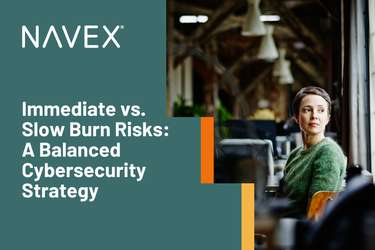In October, deputy attorney general Lisa Monaco made headlines when she announced a new leniency policy at the U.S. Justice Department for companies that disclose compliance violations discovered during mergers and acquisitions.
As pronouncements from regulators go, that’s welcome news for compliance officers; another way to avoid guilty pleas, monetary penalties, and compliance monitors never hurts.
But compliance officers shouldn’t overlook a larger shift Monaco also talked about during her speech – one that could have significant implications for the role you play in your company.
Specifically, Monaco talked about “new tools and remedies to punish and deter” corporate misconduct. Then she gave several examples of what these new tools and remedies are:
- Two pharmaceutical companies charged as part of a price-fixing scheme for cholesterol drugs. The companies had to divest themselves of their cholesterol product lines, the first time the Justice Department made divestiture part of the settlement in a corporate criminal resolution.
- A Greek shipping company caught transporting Iranian oil in violation of U.S. sanctions. Not only did the company plead guilty and pay a $2.5 million fine; it had to surrender 1 million barrels of Iranian oil to the United States. (Monaco called this “specific performance,” which is lawyer-speak for “go do this specific task as part of the deal.”)
- A chemicals company charged with extensive bribery of foreign officials who ran state-owned oil companies. The chemical company had to revamp its entire sales model, ending the use of resellers and other intermediaries in favor of a direct sales model.
So, what’s the larger shift here? How do these specific enforcement actions connect to Monaco’s pronouncement about compliance violations at acquisitions, and other Justice Department policy changes such as pushing for executive compensation clawbacks?
None of those solutions can work unless the company embraces a culture of compliance at the highest levels, and bakes compliance concerns right into its corporate strategy.
Supporting a compliance-centric business
For example, go back to the chemicals company mentioned above that revamped its entire sales model. There’s no way a compliance officer alone can implement such a dramatic structural change. Even if you had the background in sales management to understand how such a restructuring could be done (and let’s be honest, no compliance officer does), you’d never have the authority to implement a reform so sweeping; no single executive would. Restructuring the sales model for a global, multi-billion dollar enterprise requires board-level approval.
We could say the same for divesting product lines as part of a corruption settlement, or surrendering valuable assets like tankers of oil. None of those remediation measures – permanent, irreversible changes to the business – could happen without senior executives and the board giving their blessing to such an arrangement.
You can see the appeal of such remedies to the Justice Department and other regulators. If they want to end the cynical perception that monetary penalties for compliance violations are just another cost of doing business, they need to find remedies that push the offending company onto a fundamentally different business trajectory. The remedies Monaco cited in her speech do just that.
That’s good news for compliance officers because it drives home to senior management and the board that a culture of ethics and compliance can’t survive on lip service alone. They need to embrace a culture of compliance early and earnestly, or else risk consequences that are disruptive, expensive, and permanent.
You can see the appeal of such remedies to the Justice Department and other regulators. If they want to end the cynical perception that monetary penalties for compliance violations are just another cost of doing business, they need to find remedies that push the offending company onto a fundamentally different business trajectory.
The acquisitions policy
All this brings us back to the policy Monaco announced in October: that the department typically will not prosecute companies that self-disclose issues at acquisition targets if the company makes that disclosure within six months of closing the deal, and remediates the compliance program weaknesses within a year.
If compliance officers ever needed a yardstick to measure how seriously your senior leadership takes compliance, this policy would be it.
That is, if senior leadership takes compliance seriously, they will bring you into their deal-making deliberations as early as possible, because they’ll want more time to uncover potential compliance violations and decide how to disclose those issues. They will welcome your counsel about whether a potentially lucrative acquisition is worth the compliance risks your company would be buying.
On the other hand, if senior leadership doesn’t invite you into their deliberations, doesn’t allow you to conduct pre-acquisition due diligence, and is perfectly content to give themselves (and you) less time to report and remediate a mess – well, that tells you something about how they value compliance too.
It’s all about how much senior management brings compliance considerations into its strategic decision-making. That’s what the Justice Department wants to see, and Monaco’s speech demonstrates the department is trying to develop new strategies of its own to bring that compliance-centric state of affairs about.
Compliance officers would be wise to explain these policy shifts to your general counsel, C-suite, and board. The sooner they see what the Justice Department is trying to bring about, the more they can reflect on how your company should respond – ideally, by baking ethical conduct and compliance into business processes across the enterprise.
For an in-depth analysis of the 2023 updates to the DOJ Evaluation of Corporate Compliance Programs (ECCP), download the latest annotated guide.






